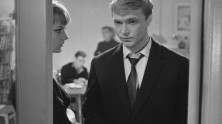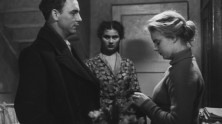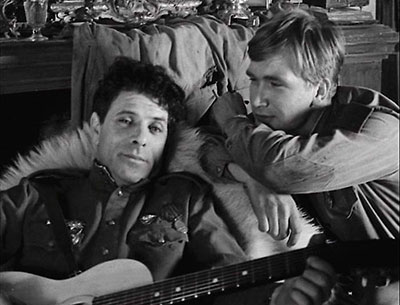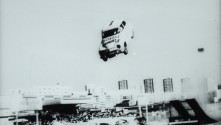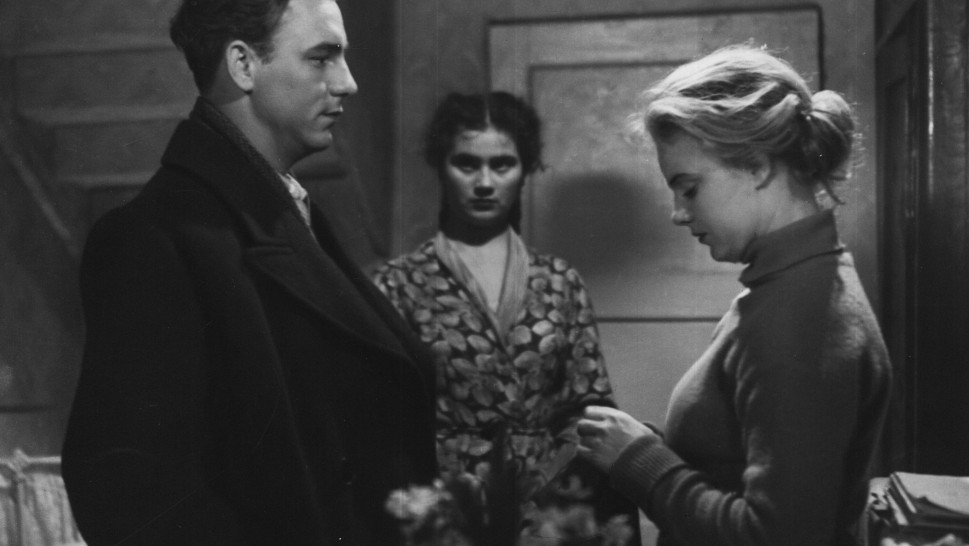
Spring on Zarechnaya Street
(Vesna na Zarechnoy ulitse)
With Nina Ivanova, Nikolai Rybnikov, Vladimir Gulyaev.
Soviet Union, 1956, 35mm, black & white, 96 min.
Russian with English subtitles.
Print source: Gosfilmofund
One of three Soviet movies released in 1956 with the word "spring" in the title, Khutsiev’s debutwas an early melodrama of the Khrushchev Thaw period. The film describes the tale of Tanya, a young teacher who comes to a provincial industrial town to work at a night school for the working class. There she meets Sasha the stoker. The film was released three years after Stalin's death, when the demand for new cinema was so overwhelming that thirty million people flocked to theaters to see it. In the cities of Zaporozhye and Odessa eponymous streets appeared, and the film’s theme song "When Springtime Comes" became a folk staple.
Miron Chernenko describes its impact: “[T]his is what initially struck critics and audiences alike: the sight of a run-down industrial town, still somehow pre-war-looking, on the cusp of the 50s real-estate ‘revolution,’ dotted with squalid hovels, fences, embankments and sidewalks, dirty buses and beer stands, populated by passers-by who dress poorly and monochromatically, and whom you have to peer at closely to discern something of an individuality, something of their own... the coastline of the social continent discovered by Khutsiev. As painstakingly and as keenly, his camera surveys the sordid, bare, scantily furnished interiors. And then, the camera takes a good hard look at the human faces, gestures, expressions, as though committing to memory this sloppily shaved and ill-bred workers' settlement: the queues, the ficus, the stagnant everydayness. No wonder that this kind of filmmaking––the storytelling first and the direction that followed dutifully––was at once interpreted as the first successful attempt at depicting the real, authentic people under the real authentic circumstances."

